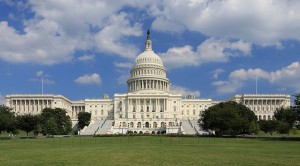What Happened at the Congressional Hearing on Religious Accommodations in the Military?

On November 19, a special meeting was convened by the U.S. Subcommittee on Military Personnel to discuss religious accommodations in the armed services. Testimonies were given by Michael Berry, senior counsel of military affairs of Liberty Institute; Ron Crews, executive director of the Chaplain Alliance for Religious Liberty; Rabbi Bruce Kahn CAPT, CHC, USN (Ret.); Travis Weber, director of the Center for Religious Liberty Family Research Council; and Mikey Weinstein, president of the Military Religious Freedom Foundation. Five witness statements and over ten supporting documents, including testimony submitted by American Humanist Association Executive Director Roy Speckhardt and the Military Association of Atheists and Freethinkers Executive Director Jason Torpy, were submitted to the subcommittee as part of a long-standing struggle concerning Section 533 of the 2013 National Defense Authorization Act that provided protection for the conscience rights of military chaplains. When President Obama signed the bill in mid-January 2013, he also issued a critical signing statement: “The military already appropriately protects the freedom of conscience of chaplains and service members.” President Obama also gave his assurance that his administration remained “fully committed to continuing the successful implementation of the repeal of Don’t Ask, Don’t Tell, and to protecting the rights of gay and lesbian service members.”
Military Times reporter Leo Shane III and others noticed that Wednesday’s panel of witnesses leaned heavily towards conservative contributors with the exception of Weinstein, whose organization represents religious minorities and nontheists. Weinstein was later grilled by a member of Congress and subsequently ignored with questions being directed to the remaining four witnesses on the panel. Despite the imbalance, all witnesses spoke to the issue of how they felt their religious liberties were being violated. Stars and Stripes reporter Chris Carroll noted that, at one end of the spectrum, Crews felt that Christians were being discriminated against while Weinstein was concerned that the regulations would allow military superiors the right to proselytize or “witness” to their subordinates. In the middle of the spectrum, Kahn spoke of his concerns that the new regulations would allow for proselytization, thus destroying the cohesion of a military unit, and the doesn’t “counsel by citing the Talmud when I know that people with me have no awareness of or affection for that source.”
Some things were obvious to me during the hearing. First, although the military is clearly diverse with its personnel, the language being used during the hearing was not inclusive. For instance, Rep. Walter Jones (R-NC) said, “I do not know how we in America can think that we should have control over the conscience of a man of faith, whether they be Jewish, Muslim or Christian,” completely ignoring the khalsa Sikhs or humanists in the audience. The larger concern that came to mind was a moment of misinformation to the panel when Crews claimed that chaplains have been “performing and providing” for all military personnel since 1775. However, it is a fact of history that the U.S. military chaplaincy has been predominantly Protestant Christian since 1775 and only began to diversify away from mainline Protestants and Roman Catholics since 1917 with the inclusion of the first Jewish, Salvation Army, and Orthodox chaplains. Dr. Mark Silk recently wrote that the Chaplain Alliance is not concerned about “the religious liberty of the rank and file,” but that it was formed “lest chaplains’ liberty to oppose the military’s acceptance of openly gay and lesbian personnel be restricted.” After all, Crews has said with bifurcating language: “You can’t have an ‘atheist chaplain’ any more than you can have a ‘tiny giant’ or a ‘poor millionaire.’”
When Religion News Service reporter Chris Stedman interviewed me before an event with the Yale Humanist Community, I mentioned that when policies say that “all are included,” it sends out powerfully confusing messages when these policies are not consistently acted-upon. For instance, what message does it send out to our sailors and soldiers when they read evangelistic messages (or imagine reading the word “manhood” when “humanness” is far more inclusive to women and men) in literature designed to train them on suicide prevention? I want religious freedom, too, and have found it in the words of the founder of the Rhode Island colony, Roger Williams: “All civil states, with their officers of justice, in their respective constitutions and administrations, are proved essentially civil, and therefore not judges, governors, or defenders of the spiritual, or Christian, state and worship.”
